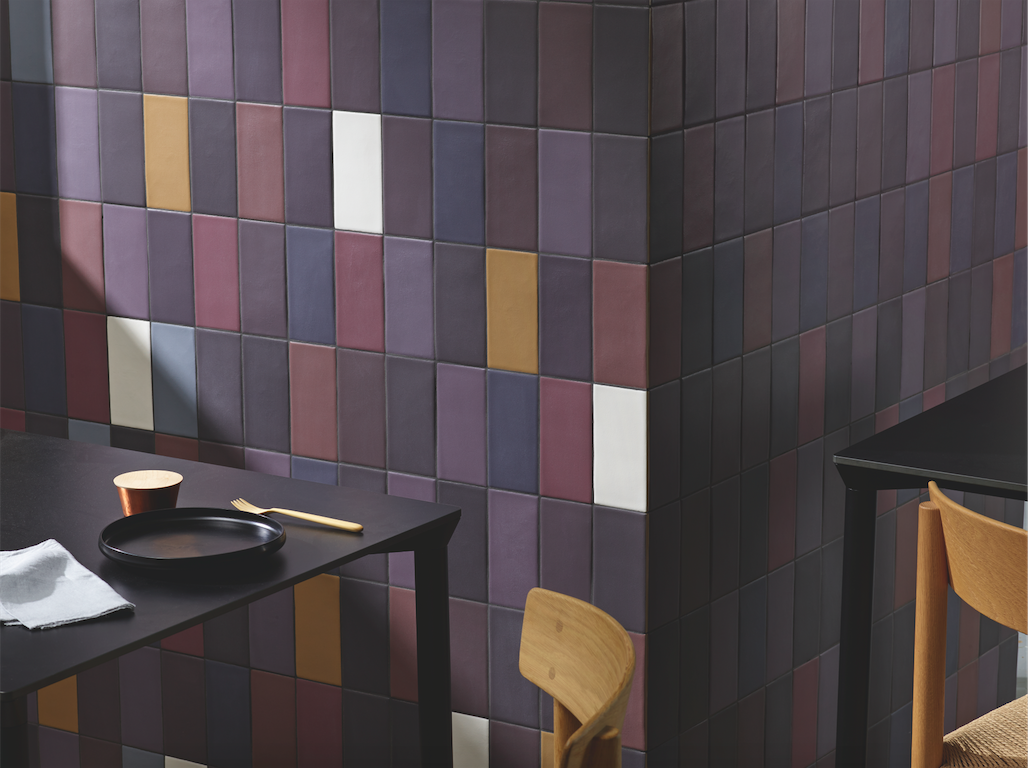
Lane collection by Barber & Osgerby for Mutina.
Have you given much thought to the grouting and adhesives used for the tiles on your walls or floors? Probably not, and that’s not surprising. Most of our attention would have gone to choosing the design of the tiles, and we happily leave the installation in the good hands of our contractor. However for a good result, the type of grouting and adhesives and how it is applied is as important as the quality of tiles you choose.
While it is highly unlikely that you might want to attempt a DIY tile installation, it’s worth knowing more about tile grouting to help you prevent or troubleshoot any problems with your tiled surfaces. We spoke to Mapei to learn more. Mapei is a world leader in the production of adhesives, and a wide range of construction or building chemical products, and RICE’s recommended partner for tile grouting and adhesives. In Singapore, their products have been used in many iconic projects such as Marina Bay Sands, Jewel and the domes at Gardens by the Bay.
1. Adhesives come with different properties for different types of tiles and installations
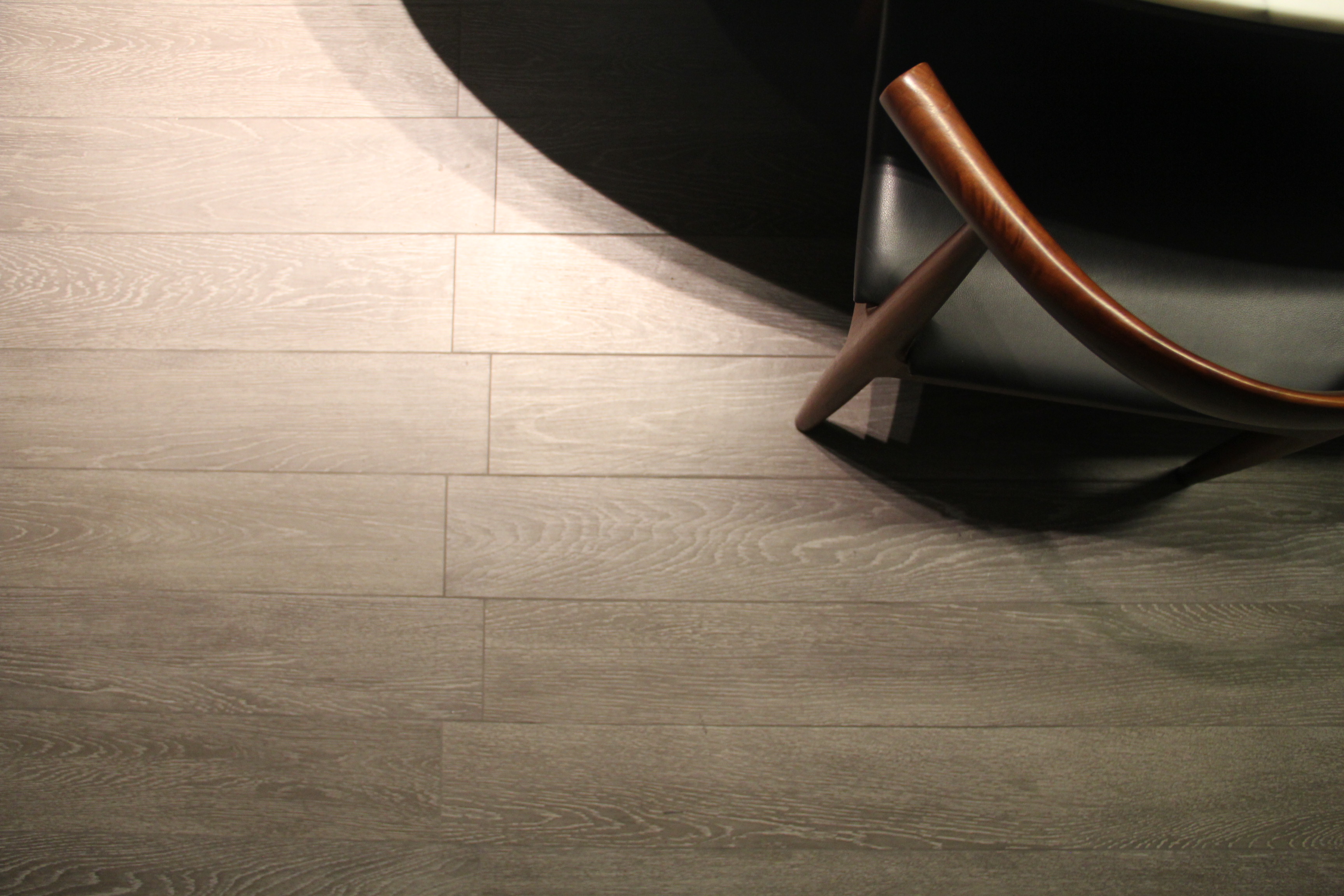
Timber-inspired tiles in riceLAB.
For regular ceramic tiles and stone installations, contractors use cementitious adhesives. These adhesives can have different and also additional qualities of being lightweight, fast-setting, and deformable (or “flexible” in layman terms). So contractors should choose the suitable adhesive which fits the needs of the tile and installation.
For example, a highly-deformable cementitious adhesive is best for huge slim tiles, which are sometimes as thin as 3.5mm. Having flexibility for these huge tiles is important to handle the impact and vibrations that travel through the installation. Mapei’s Ultralite S2 high performance cementitious adhesive has been specially formulated for slim tiles. Besides being highly-deformable, it is lightweight and relatively easy to trowel and spread on the tile too.

Picture: Mapei
Swimming pool tiles can use either cementitious or epoxy-based adhesives. Mosaics that has a back-netting can use an epoxy adhesive to install. The grouting to go along with it are either cementitious or epoxy-based. Where durability and chemical resistance are of concern, choose epoxy based grouting. You could use Mapei’s Kerapoxy or Kerapoxy Design for such instances, which are the epoxy based adhesive and grouting.
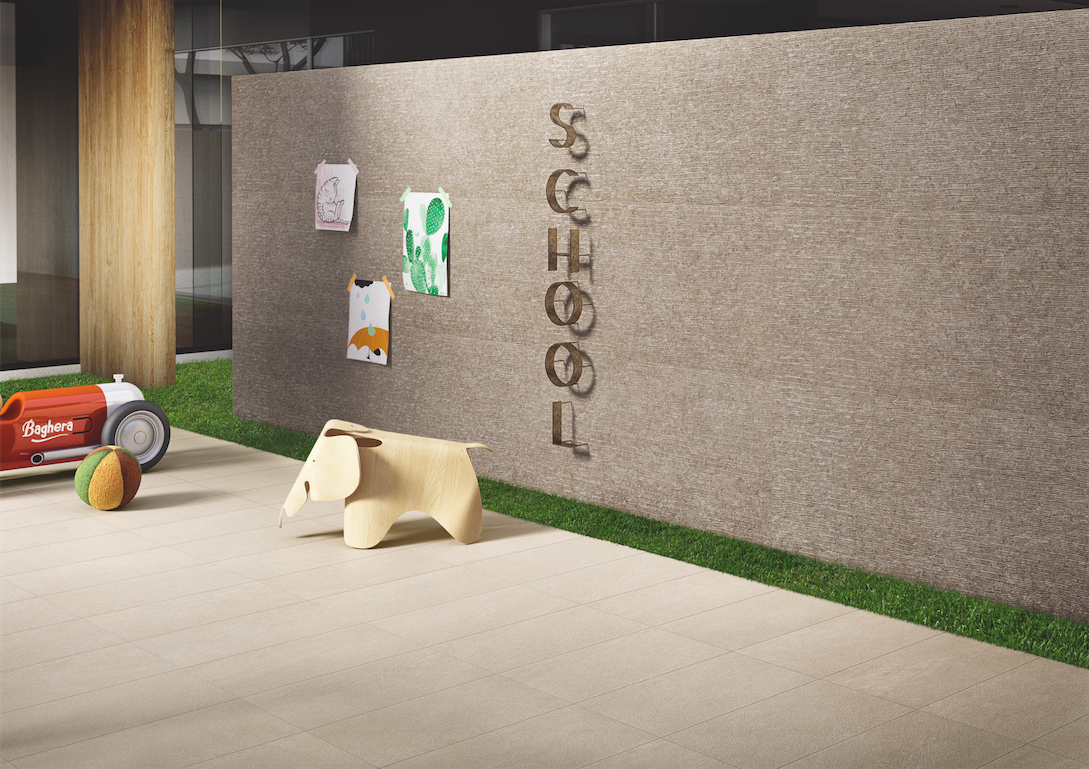
Ergon’s Stone Talk tiles being used in an exterior setting.
The suitable type of adhesive provide various degree of bonding strength in different locations (such as driveways, bathrooms) are to be used appropriately according to different made of materials.
2. How you apply the adhesive matters

Picture: Mapei
Use appropriate tools for the tile installation, and follow the manufacturer’s recommendations for the adhesive mix and use. Important contributing factors that can make an installation last are the quality and preparation of substrate to get a good level as well as using sufficient adhesive mortar with proper laying method by notch-troweling. Some may prefer to have their grout lines to be as narrow as possible, but this may strain the tiled surface over time having not enough room for movement stresses which may lead to tile damage. For this reason, RICE recommends a joint width of 3mm to 5mm.
For mosaics that come with a back-netting, installers have to ensure that the adhesive bonds direct with the back of the mosaic tiles, and not just in contact with the netting.
3. Grouting comes in more than one colour
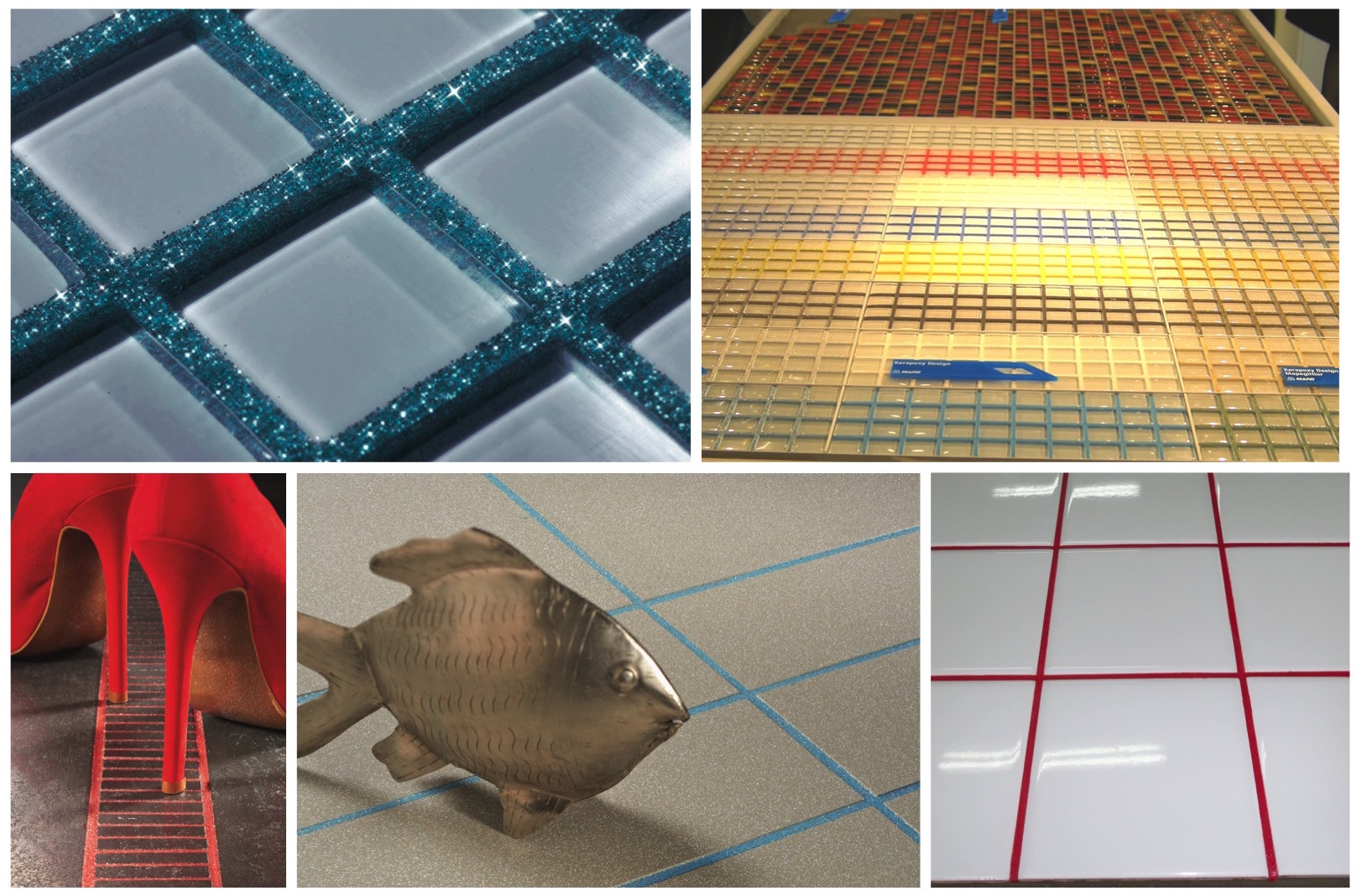
Picture: Mapei
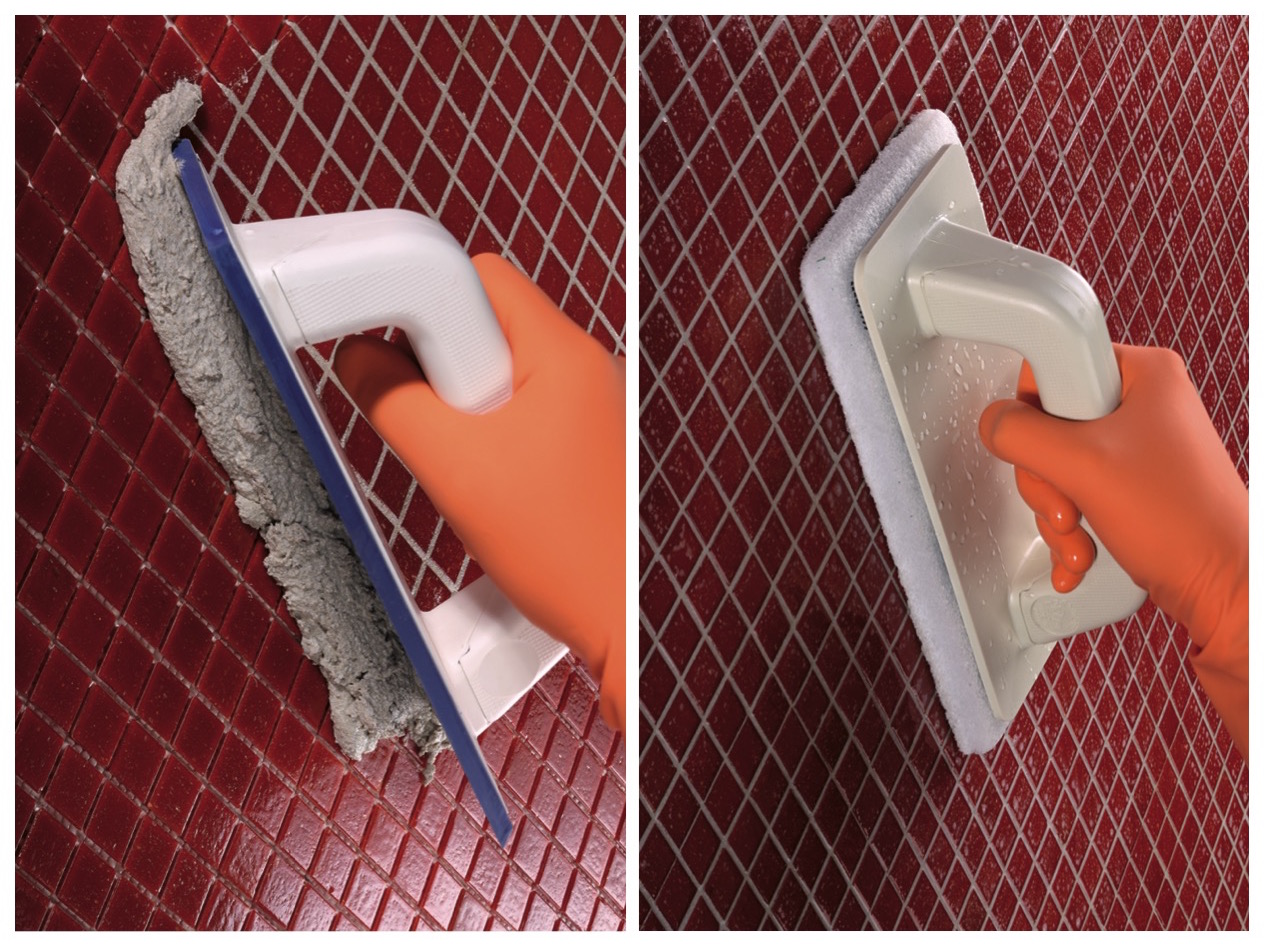
Picture: Mapei
We all hate it when mould starts growing or dirt gets trapped on our grouting, which happens mostly in wet areas such as the bathroom. There’s no way to prevent this from happening, as cementitious grout has capillary pores. For cleaning cementitious grouting use a PH-neutral cleaner which doesn’t damage it. Most of us try to scrub away mould and dirt, but over time that action might abrade and remove your grouting surface as well. What if mould and dirt could be simply wiped away? As mentioned earlier, epoxy-based grouting such as Mapei’s Kerapoxy or Kerapoxy Design has super low absorption property which make them resistant to the growth of mould and hence easier to clean. This type of grouting material and application labour cost more due to its nature.
Find out more about Mapei’s adhesives and see your grouting colour choices at riceLAB. Make an appointment by emailing us here or by calling 6692 1199. riceLAB is at 213 Henderson Road 01.03 Singapore 159553. RICE is open from Mondays to Fridays 10am to 7pm, and Saturdays from 10am to 6pm.
Please contact Mapei or any reputable adhesive and grout makers if your qualified builder and/or professional tilers need advice/method on the appropriate product to lay our materials.
Latest Post
Slither into the New Year with Harmony & Sophistication, along with PANTONE Colour 2025 - Mocha Mousse
Don’t miss these 3 RICE Tile Collections that best depict these Interior Designers’ Design Aesthetics
5 Local Renovation Projects that RICE Proudly Calls & Goes ‘Home’ to





